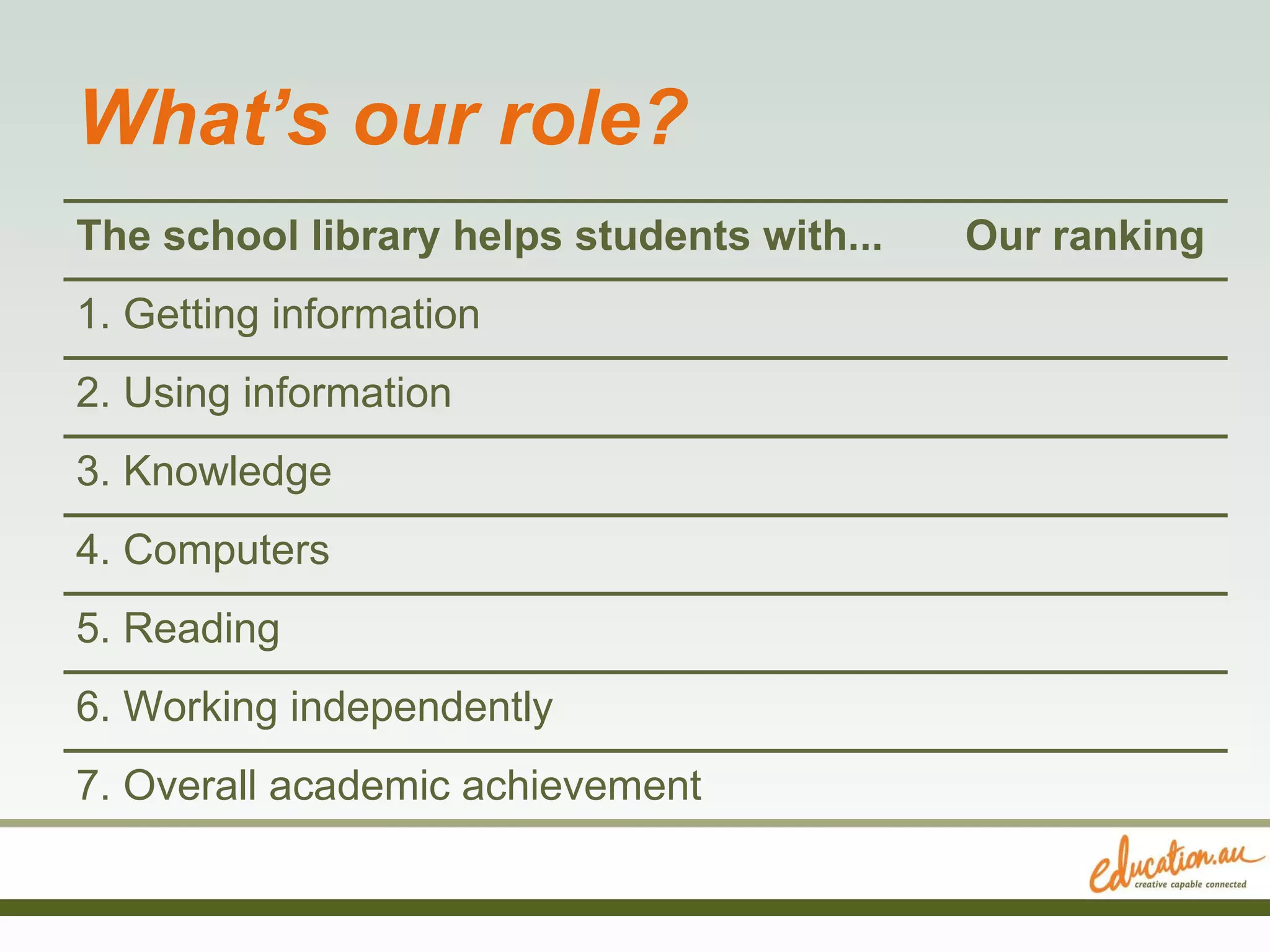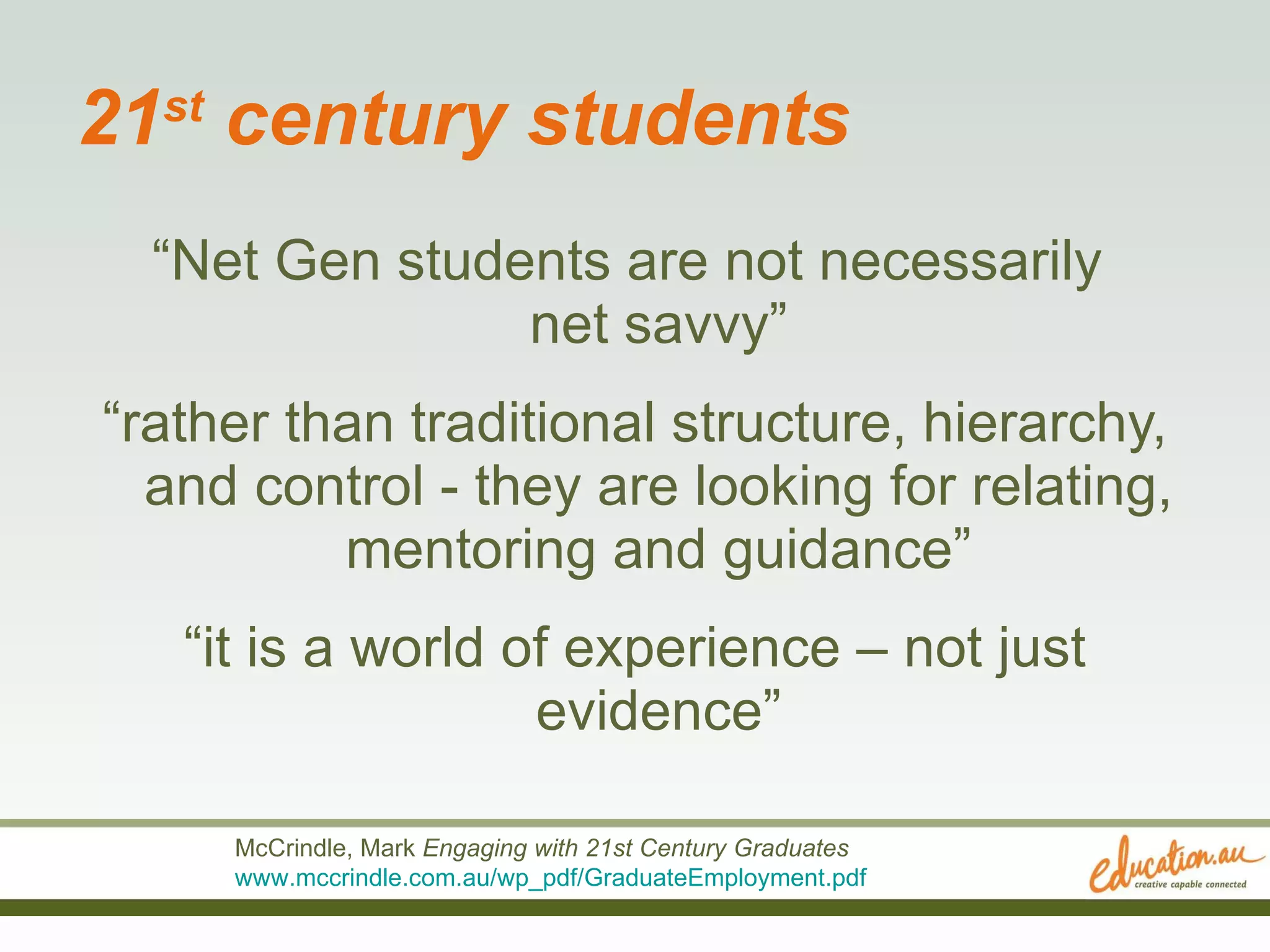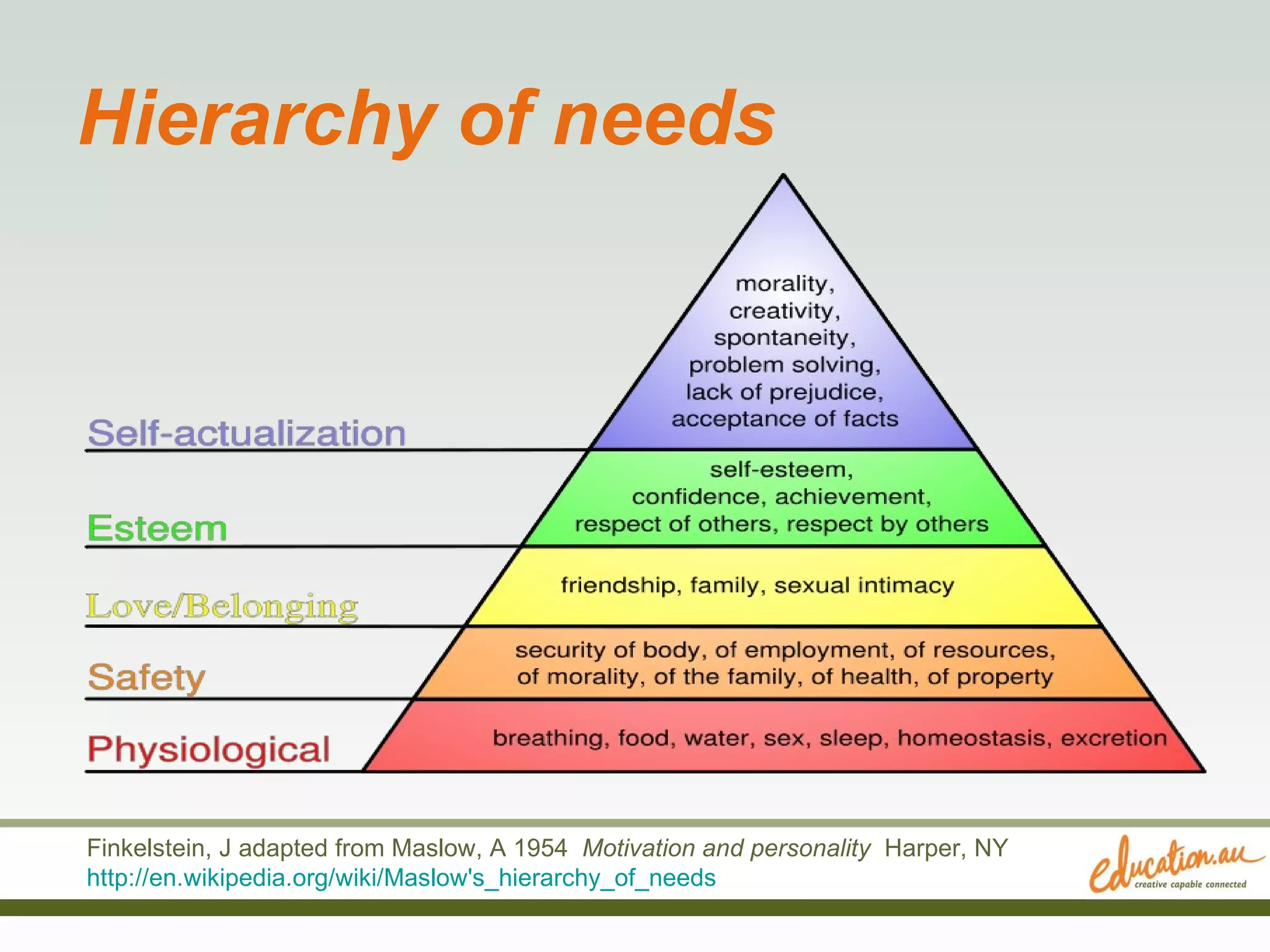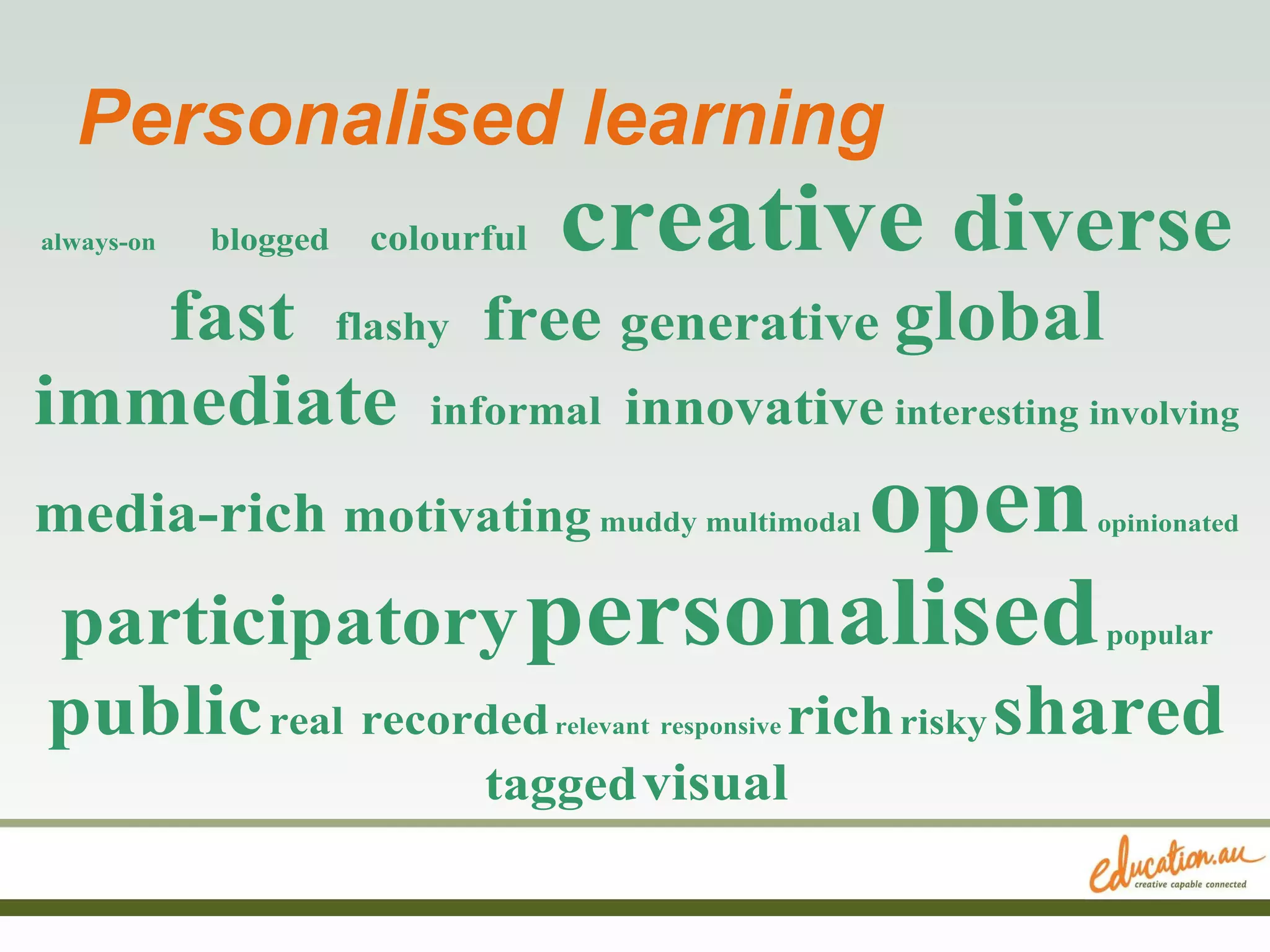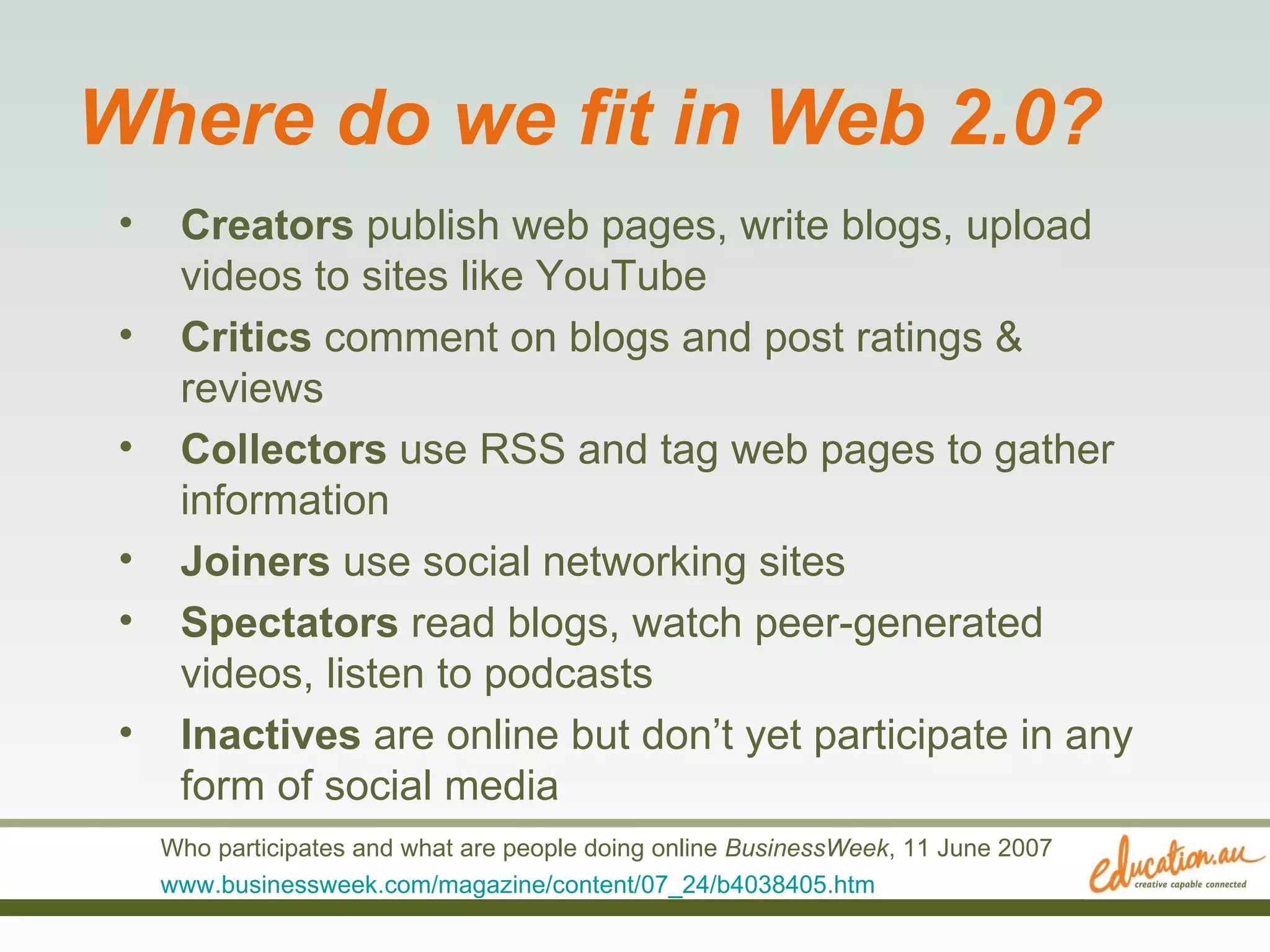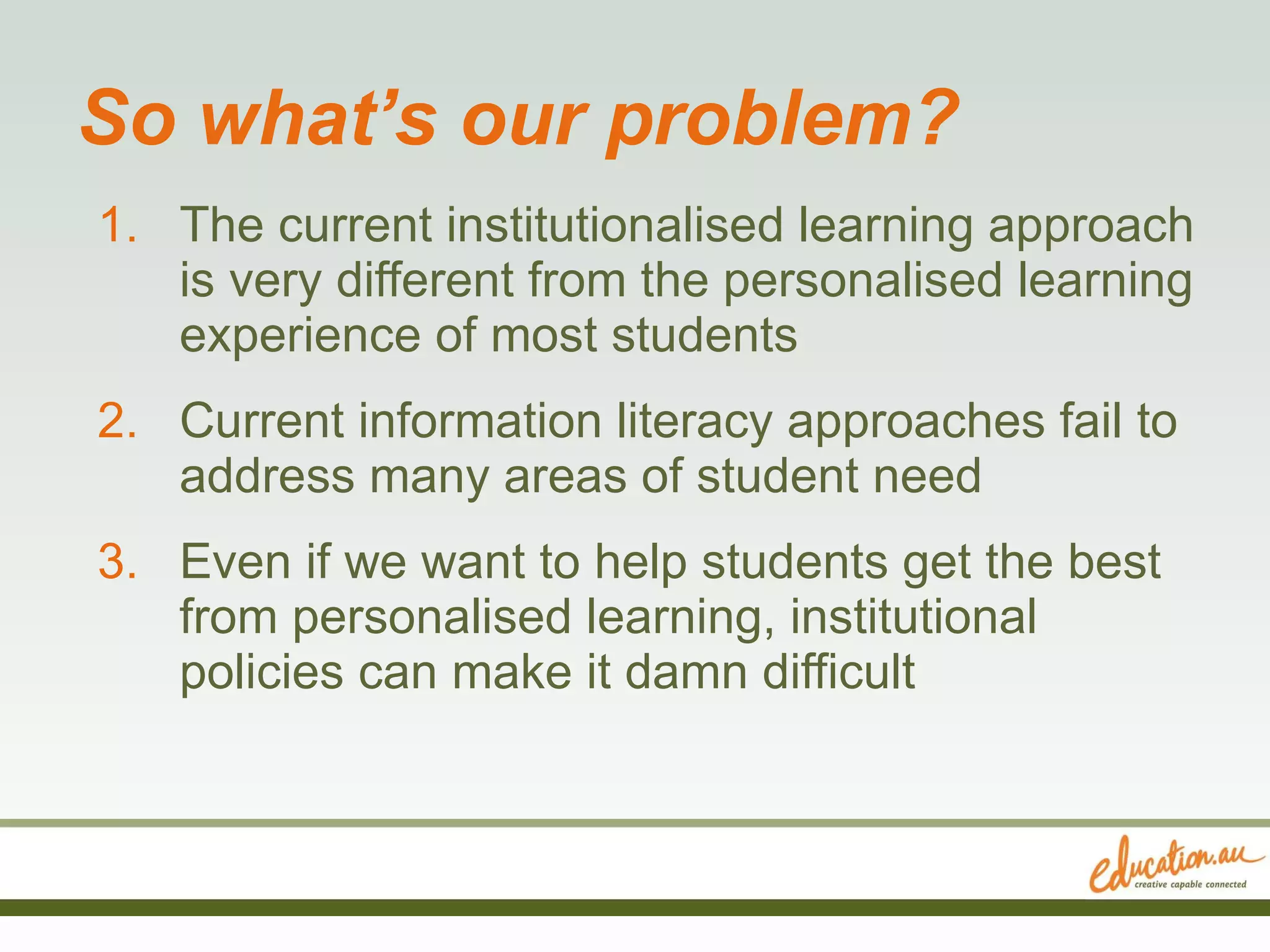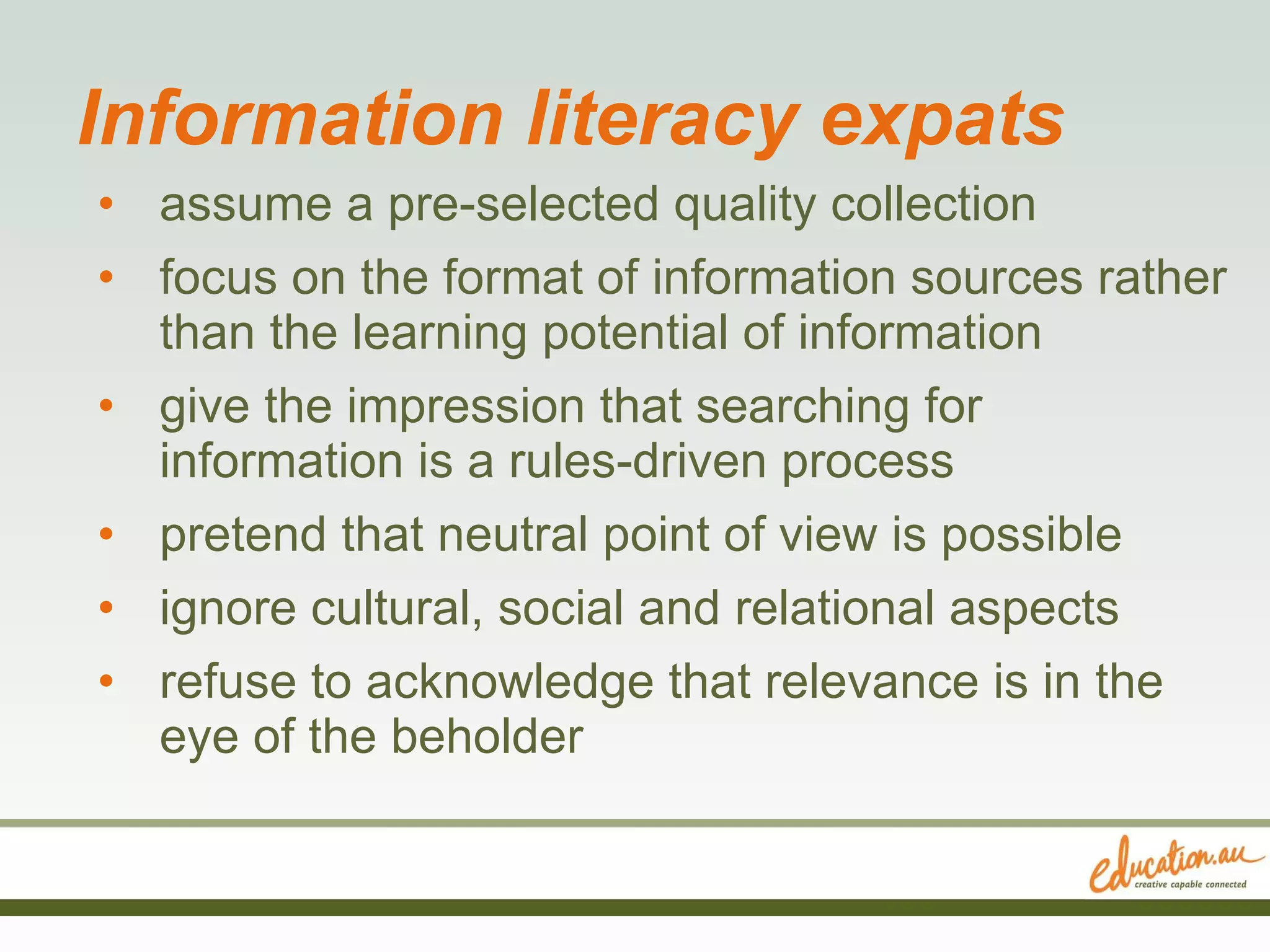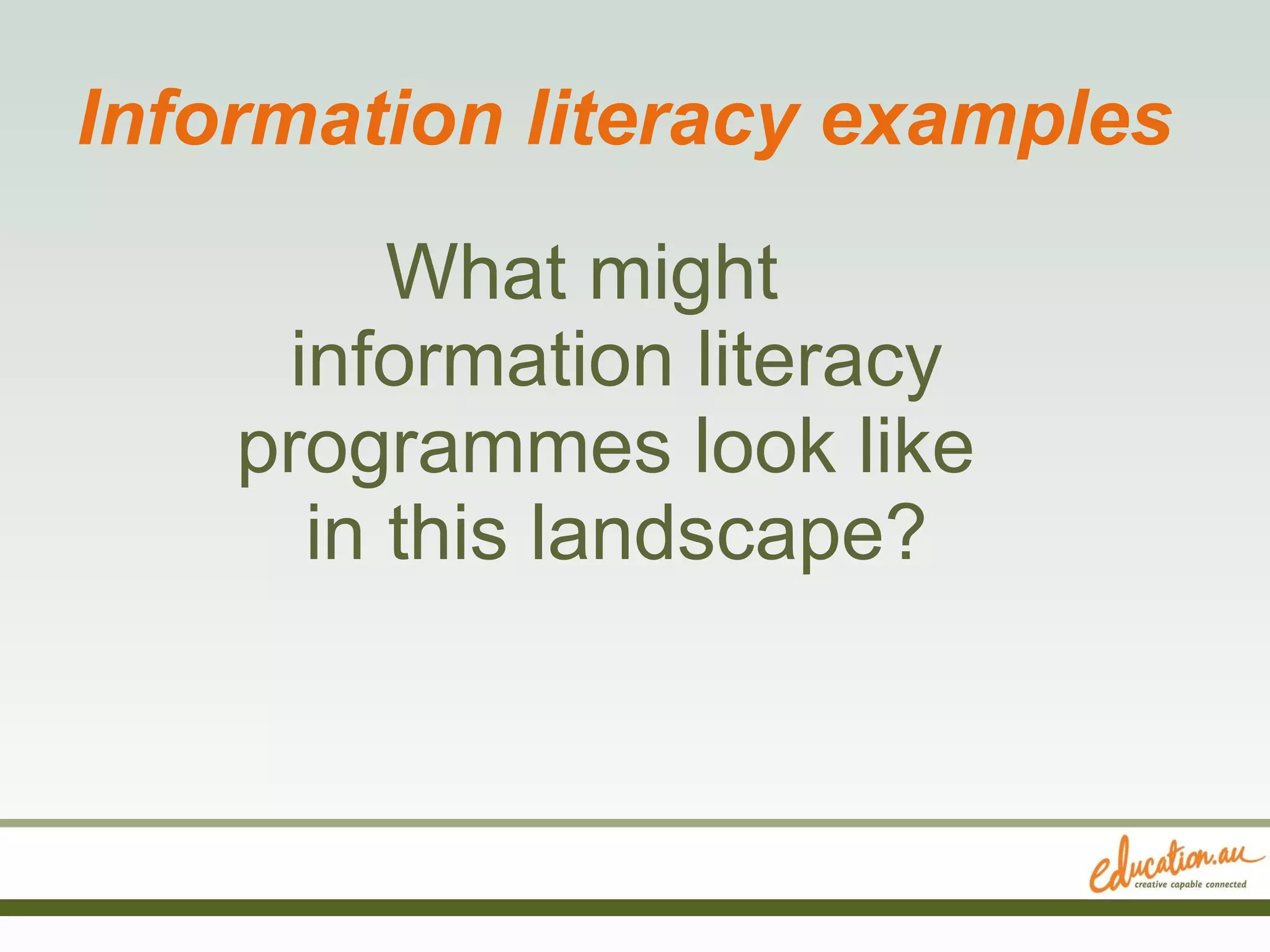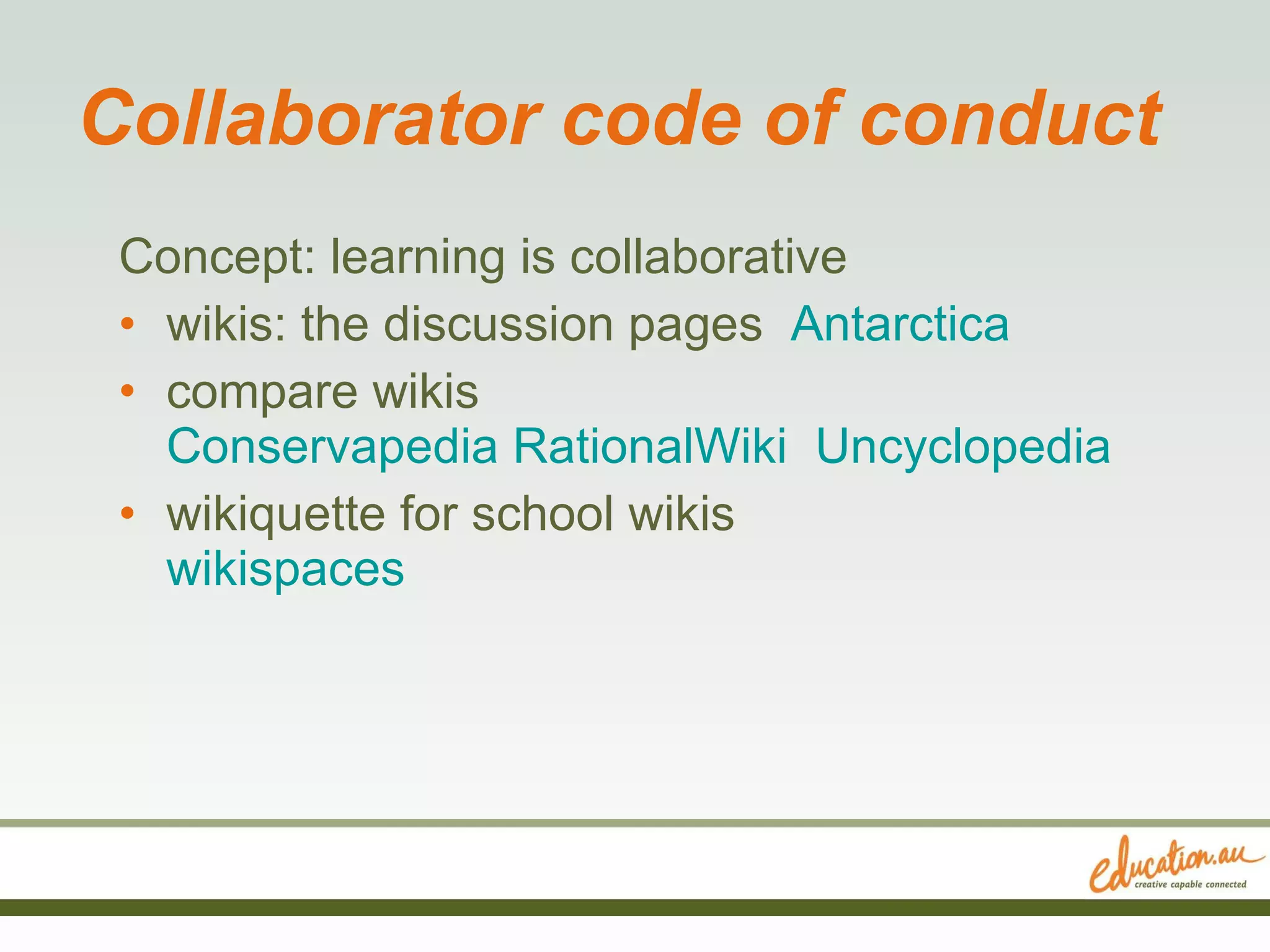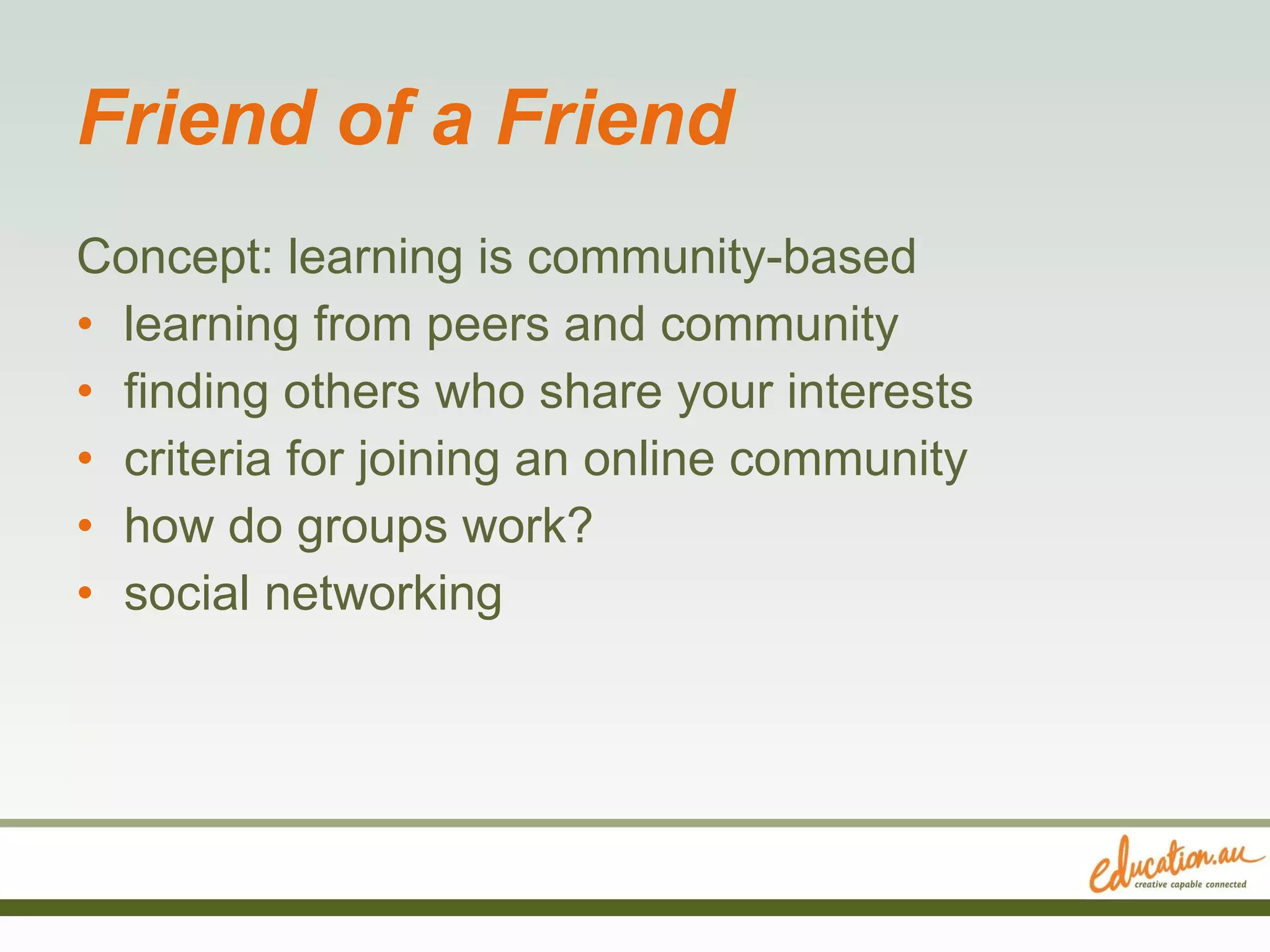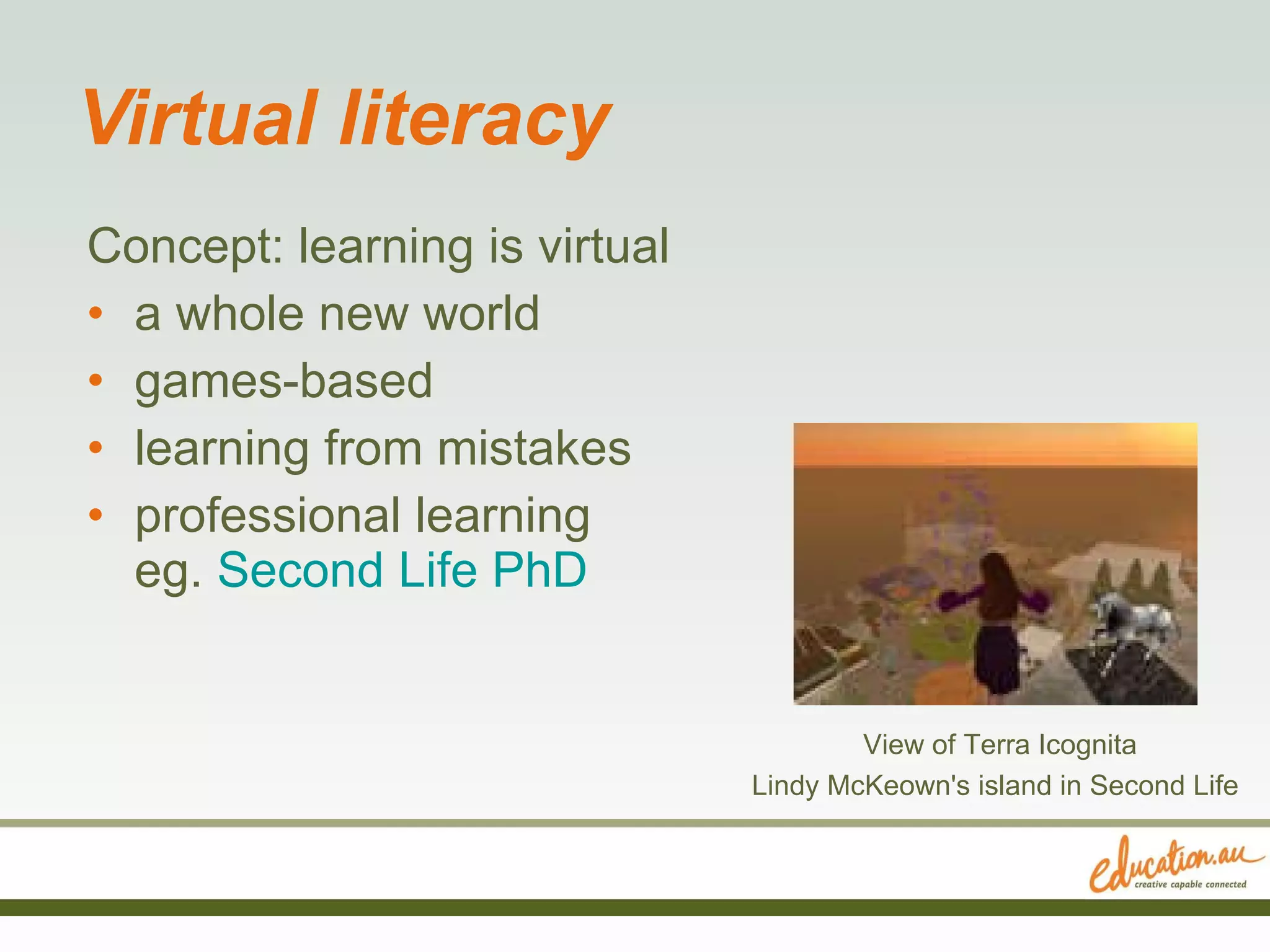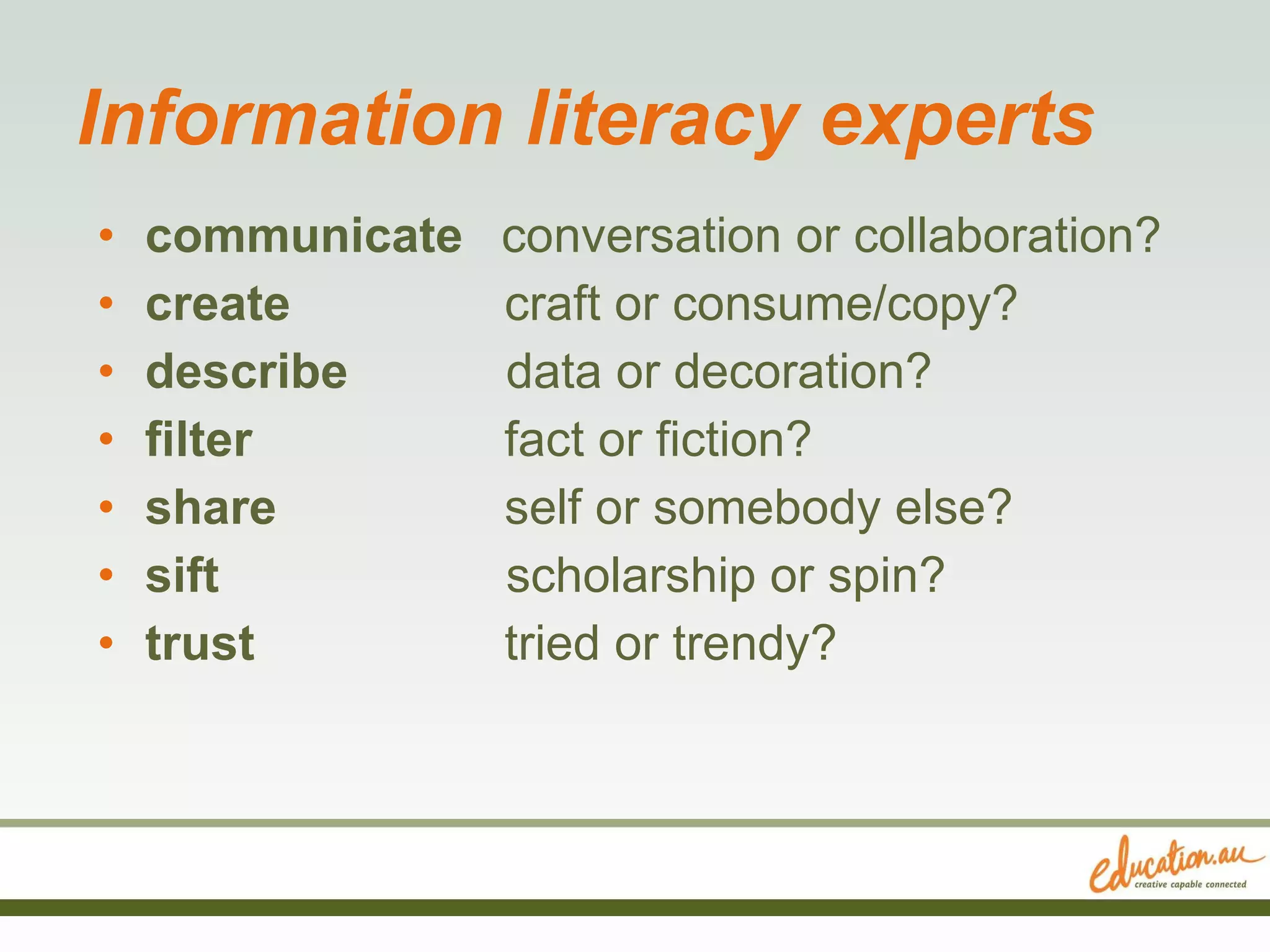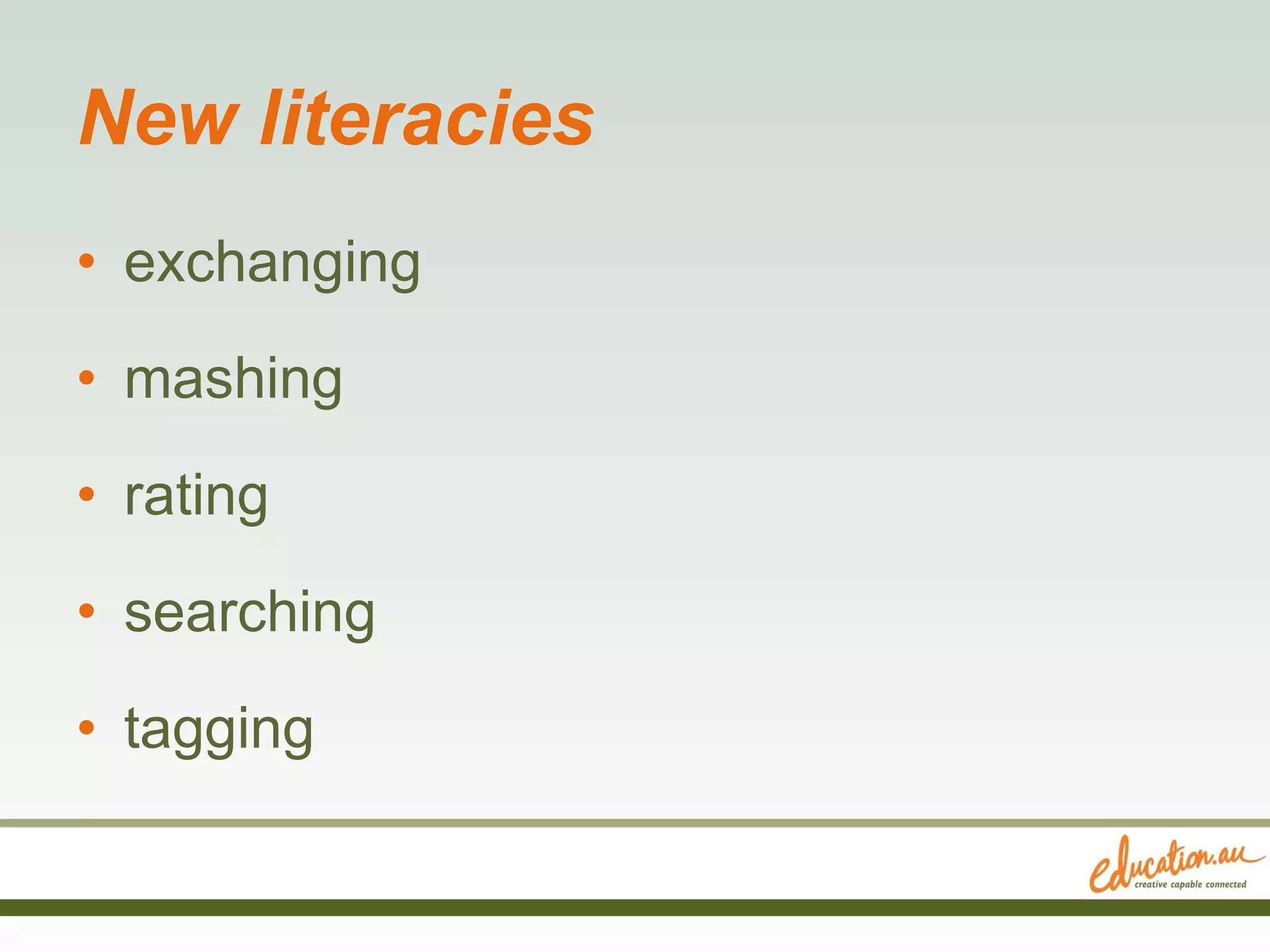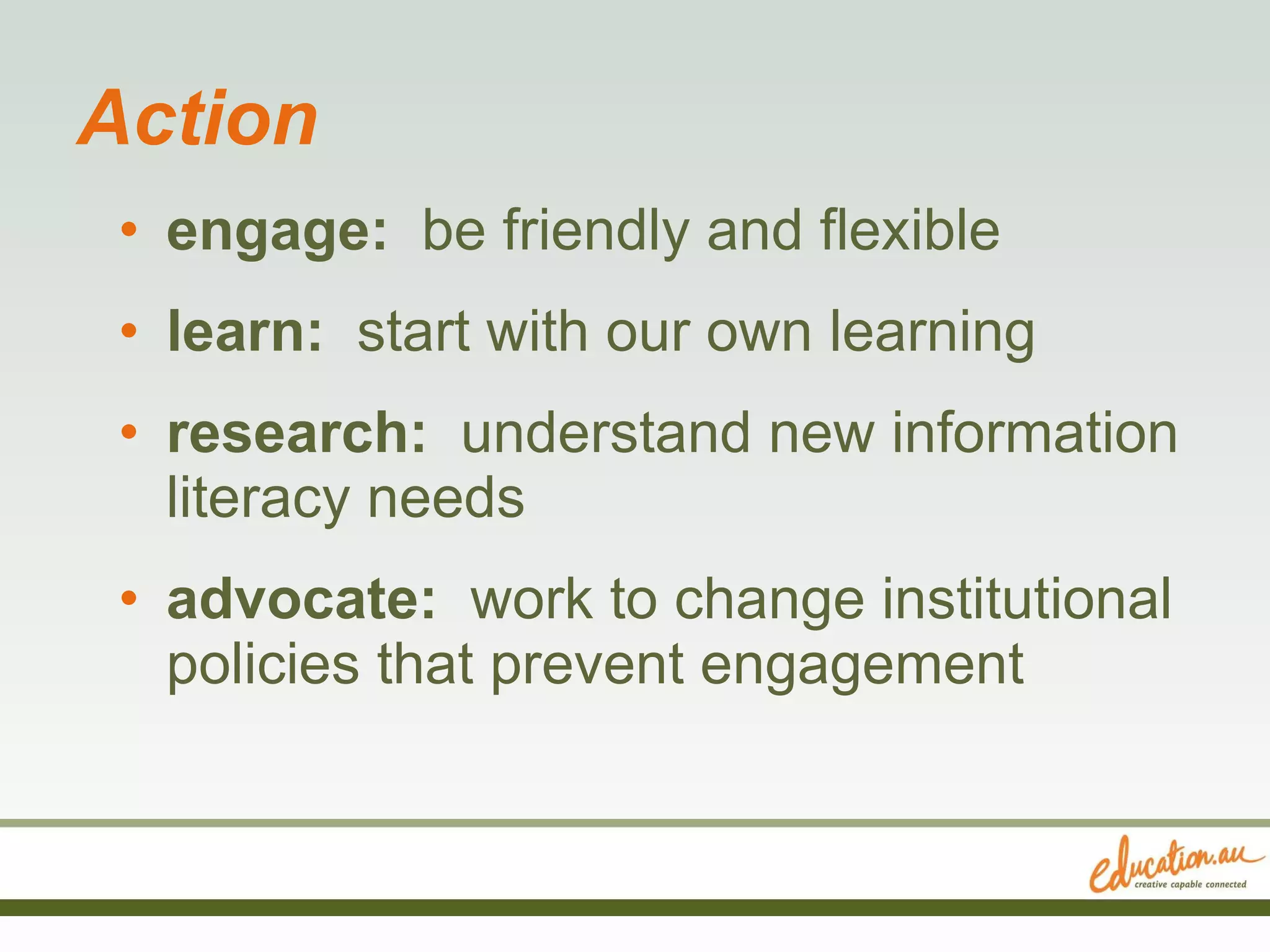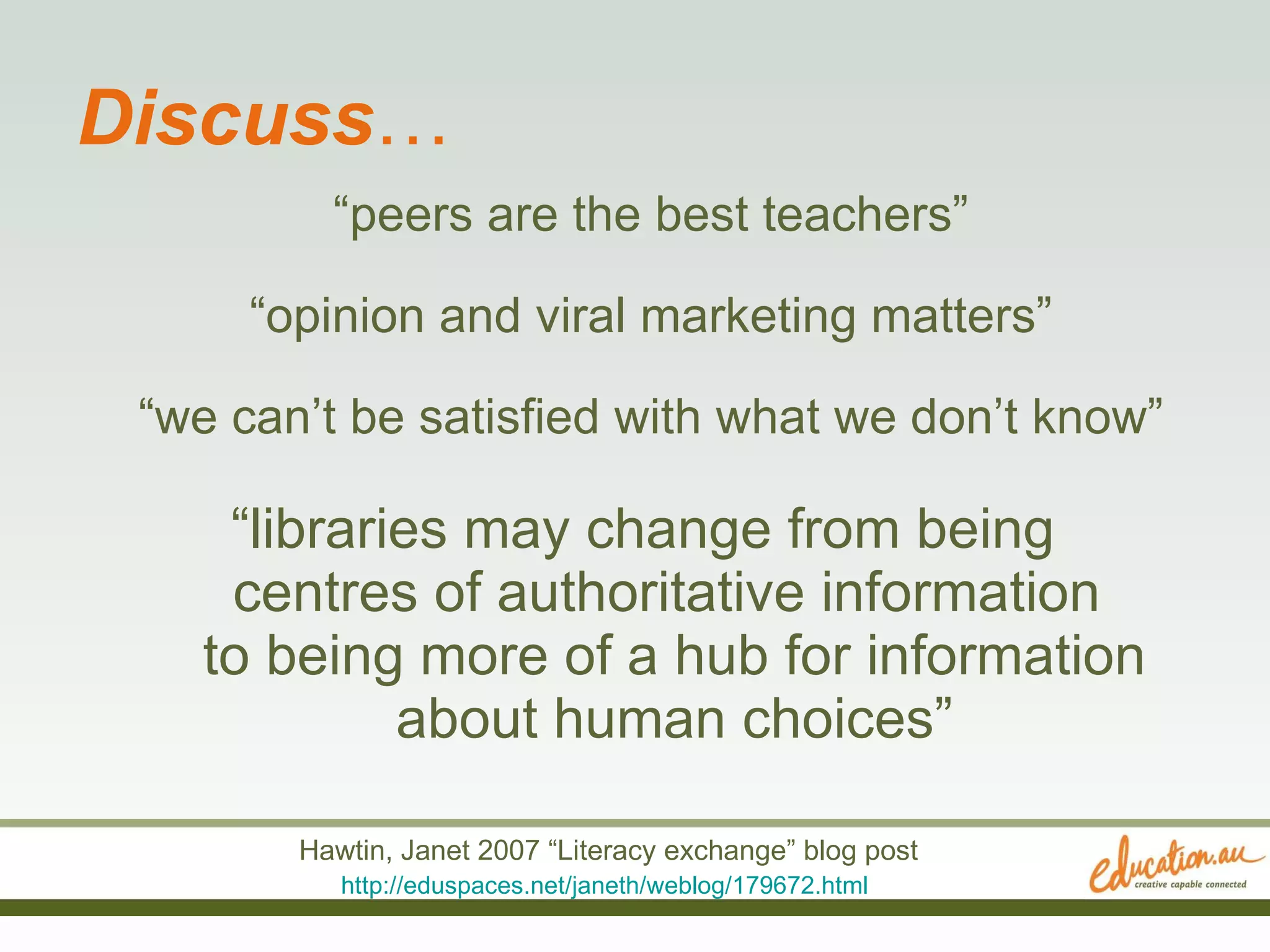The document discusses the evolving role of school libraries in information literacy within the context of 21st-century learning, emphasizing the need for personalized learning approaches that align with students' experiences and the digital landscape. It critiques traditional information literacy methods, highlighting their inadequacy in addressing diverse student needs and calls for a shift towards collaborative, creative, and community-based learning. The piece suggests exploring new information literacy models and adapting to technological changes while advocating for institutional policy reform to support these transitions.

